9 Steps to a Stress-free Home Renovation
Follow these tips to ensure your project is as painless as possible
Denise O'Connor
25 February 2018
Denise holds a degree in architecture from Richview School of Architecture in UCD. After graduating in Dublin she moved to London where she worked on residential, healthcare and office schemes including the award-winning headquarters for Holiday Extras for which she was project architect at Walker and Martin. In 2005 she returned to Dublin and set up architecture and interior design consultancy Optimise Design.
Denise is an architecture and interiors columnist for the Irish Times and a contributor for HOUZZ. She is also a regular contributor to various other publications and also gives lectures on a range of topics. She was a presenter for the first series of the RTE TV show ‘The Design Doctors’ and is the creator and name behind the successful paint collection for Dulux called Signature...
Denise holds a degree in architecture from Richview School of Architecture in UCD.... More
Renovating your home can be a stressful process. Regardless of how big or small the project is, it will have an impact on you and your family. Dust, chaos and the invasion of tradespeople every morning can take its toll on even the most patient among us. However, with a little forward planning and good communication with your contractor, the process can become a lot more bearable.
Research your contractor
Do some research before selecting your contractor. Search on Houzz to find trusted professionals, read their customer reviews and take a look at their previous projects. If you’ve been given a recommendation from neighbours or friends, try to visit their homes to take a look at the type of work the contractor offers. Once you’ve found possible professionals, don’t forget to ask for references.
You want to be very confident your chosen contractor will be able to deliver the job to the standard you expect, on time and within budget. Building work is stressful enough without worrying that the team you’ve hired isn’t up to the job.
Do some research before selecting your contractor. Search on Houzz to find trusted professionals, read their customer reviews and take a look at their previous projects. If you’ve been given a recommendation from neighbours or friends, try to visit their homes to take a look at the type of work the contractor offers. Once you’ve found possible professionals, don’t forget to ask for references.
You want to be very confident your chosen contractor will be able to deliver the job to the standard you expect, on time and within budget. Building work is stressful enough without worrying that the team you’ve hired isn’t up to the job.
Get a programme of works
Before the builders start, ask them to provide a programme of works, so you know what to expect. For example, try to find out when you’re likely to be without power or water and for how long. Establish which areas of the house are off-limits, and discuss issues such as bathroom facilities, parking, hours of work and the impact on neighbours.
Find ingenious ideas for maxing the height of your rear extension
Before the builders start, ask them to provide a programme of works, so you know what to expect. For example, try to find out when you’re likely to be without power or water and for how long. Establish which areas of the house are off-limits, and discuss issues such as bathroom facilities, parking, hours of work and the impact on neighbours.
Find ingenious ideas for maxing the height of your rear extension
Schedule to suit your family
Plan the works to suit your household. For example, it might make more sense to schedule the renovation over the summer, when you might have planned to be away. Consider things such as exams or children needing to study, or other events where the disruption of builders might not be ideal.
Plan the works to suit your household. For example, it might make more sense to schedule the renovation over the summer, when you might have planned to be away. Consider things such as exams or children needing to study, or other events where the disruption of builders might not be ideal.
Vacate the property for a while if you can
If your renovation is quite extensive, the ideal solution is to move to temporary accommodation. However, renting can be costly and it’s difficult to find short-term lets.
If you can’t move out, try to take a holiday during the worst part of the works. This will make life a lot easier for everyone. Speak to your contractor before the job starts, so you can schedule to be out of the house – even if you just stay with friends – for the most disruptive part of the project.
If your renovation is quite extensive, the ideal solution is to move to temporary accommodation. However, renting can be costly and it’s difficult to find short-term lets.
If you can’t move out, try to take a holiday during the worst part of the works. This will make life a lot easier for everyone. Speak to your contractor before the job starts, so you can schedule to be out of the house – even if you just stay with friends – for the most disruptive part of the project.
Make all of your decisions before the work starts
Once the builder starts on site, things can move very quickly. You’ll need to make a lot of decisions in a short period of time and, unless you have the answers, you could face delays, extra expense and a lot of stress.
It’s important to choose any fixtures, fittings or finishes the builder will need to keep the project moving well in advance of the work starting. By having your sanitaryware, windows and tiles chosen early, you won’t feel under pressure to make hasty decisions.
Once the builder starts on site, things can move very quickly. You’ll need to make a lot of decisions in a short period of time and, unless you have the answers, you could face delays, extra expense and a lot of stress.
It’s important to choose any fixtures, fittings or finishes the builder will need to keep the project moving well in advance of the work starting. By having your sanitaryware, windows and tiles chosen early, you won’t feel under pressure to make hasty decisions.
Be upfront about your plans
Some contractors prefer a vacant property, so if you work from home, are in with kids or retired, for example, it’s best to let the builder know. While the works are going on, make a plan with your contractor to section off an area where you can retreat to for a break from the chaos. Most contractors will be able to set you up with some sort of sink and cooking area, which you may have to move around.
However careful and considerate your builders are, there will be dust and disruption. Try to keep on top of dust in the areas where you sleep and cook by closing doors and wiping down each day.
Some contractors prefer a vacant property, so if you work from home, are in with kids or retired, for example, it’s best to let the builder know. While the works are going on, make a plan with your contractor to section off an area where you can retreat to for a break from the chaos. Most contractors will be able to set you up with some sort of sink and cooking area, which you may have to move around.
However careful and considerate your builders are, there will be dust and disruption. Try to keep on top of dust in the areas where you sleep and cook by closing doors and wiping down each day.
Clear out your home
Before the contractor starts, you’ll need to ensure the areas in which they’ll be working are completely clear. Empty your cupboards, move out all furniture, and remove artwork, curtains and blinds. You can either put everything in storage, or move it to a room that’s not being worked on. Cover everything else with plastic sheeting, and shut, then seal any rooms not in use with tape.
Most contractors will be happy to help you move large items of furniture, but be realistic about what they’ll move for you. If you’re planning to leave large items in the room, bear in mind that while they’ll be happy to work around certain things if they have to, it will slow them down. The best strategy is to talk to your contractor first and come up with a solution that works best for all parties.
Before the contractor starts, you’ll need to ensure the areas in which they’ll be working are completely clear. Empty your cupboards, move out all furniture, and remove artwork, curtains and blinds. You can either put everything in storage, or move it to a room that’s not being worked on. Cover everything else with plastic sheeting, and shut, then seal any rooms not in use with tape.
Most contractors will be happy to help you move large items of furniture, but be realistic about what they’ll move for you. If you’re planning to leave large items in the room, bear in mind that while they’ll be happy to work around certain things if they have to, it will slow them down. The best strategy is to talk to your contractor first and come up with a solution that works best for all parties.
Talk to your neighbours
If anything is going to cause you stress, it’s a fence war. To avoid this kind of conflict, it’s really important to keep your neighbours informed about anything that might affect them. Let’s face it, they will have to put up with a lot of noise and disruption while the work is going on.
Alleviate any fears by discussing your plans with your next door neighbours – make them aware of the start date and the agreed finish date. And if issues do arise, deal with them immediately and try to come to a mutually satisfactory solution.
If anything is going to cause you stress, it’s a fence war. To avoid this kind of conflict, it’s really important to keep your neighbours informed about anything that might affect them. Let’s face it, they will have to put up with a lot of noise and disruption while the work is going on.
Alleviate any fears by discussing your plans with your next door neighbours – make them aware of the start date and the agreed finish date. And if issues do arise, deal with them immediately and try to come to a mutually satisfactory solution.
Set aside a contingency
Money worries are a sure source of stress. To avoid this, it’s vital you keep track of your budget while the works are underway. It’s especially important that you set aside a contingency for any unforeseen items that might arise; 10% of the total cost is a good benchmark for how much to put away.
If you own a period property, you’ll need to factor in a little more, as the likelihood of uncovering issues is higher with older houses. For a period home, somewhere between 15% and 20% is appropriate.
Discover inspiring ideas for Victorian homes from our Houzz Tours
Tell us…
Are you feeling anxious about your renovation project? Did you find these tips useful? Share your thoughts in the Comments section.
Money worries are a sure source of stress. To avoid this, it’s vital you keep track of your budget while the works are underway. It’s especially important that you set aside a contingency for any unforeseen items that might arise; 10% of the total cost is a good benchmark for how much to put away.
If you own a period property, you’ll need to factor in a little more, as the likelihood of uncovering issues is higher with older houses. For a period home, somewhere between 15% and 20% is appropriate.
Discover inspiring ideas for Victorian homes from our Houzz Tours
Tell us…
Are you feeling anxious about your renovation project? Did you find these tips useful? Share your thoughts in the Comments section.
Related Stories
Wellbeing
How to Improve the Air Quality in Your Home
Want to ensure your home environment is clean and healthy? Start by assessing the quality of your air
Full Story
Wellbeing
How to Prepare Your Home for Summer Heat
Check out these updates that will ensure your property is ready for hotter days
Full Story
Professional Advice
10 Tips for Choosing the Perfect Bed Linen
Should you pick crisp cotton or rumpled linen – and does thread count really matter? Bed linen can be baffling – here's all you need to know
Full Story
Renovating
How Can You Carve Out a New Room Without Extending?
By Kate Burt
When it comes to creating extra room, a mezzanine can be your best friend, cannily boosting space without the need for permission
Full Story
Renovating
Best of Houzz 2024: The Winning Design Projects
The Best of Houzz 2024 award winners have been announced. Take a look at some of the winning designs
Full Story
Redefining Design
A Room-by-room Guide to Inclusive Design
By Kate Burt
What is inclusive design – and why is it important for all our homes if we want them to be truly sustainable?
Full Story
Kitchens
How to Design a Multigenerational Kitchen
A space that successfully meets the needs of all those who use it is not only inclusive, it’s futureproof
Full Story
Renovating
How to Cut the Cost of Your Extension Project
Stay on budget when planning and building your extension with these expert tips for keeping costs down
Full Story
Most Popular
How to Survive a Major Building Project
By Eva Byrne
Get expert tips for improving your home while preserving your sanity
Full Story
Pets
Expert Ways to Integrate Your Dog’s Bed into Your Home
Good design can help to create the perfect home for you, but also a cosy spot for Fido to rest his weary paws
Full Story







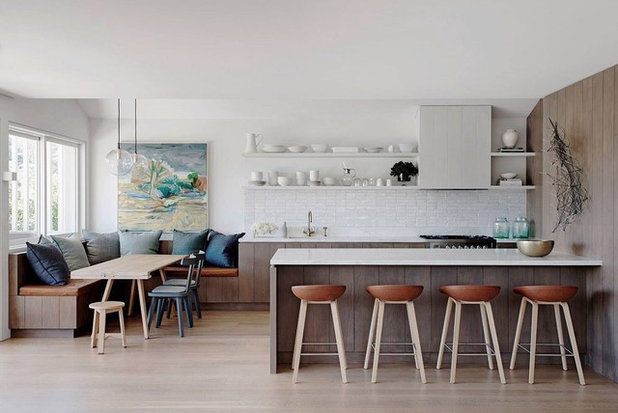
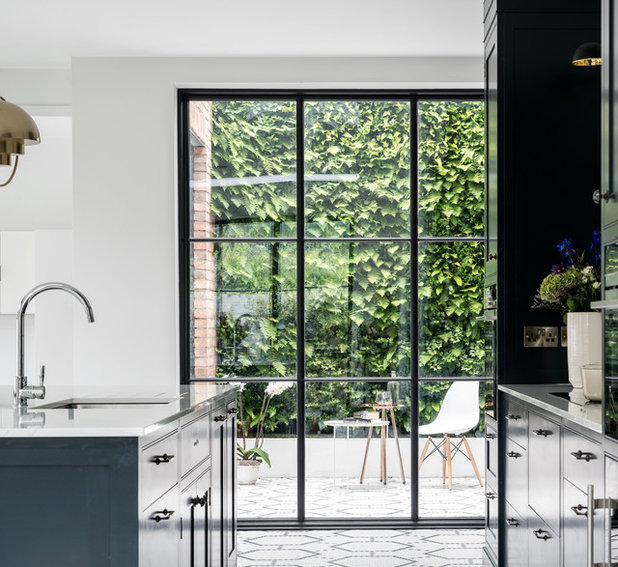
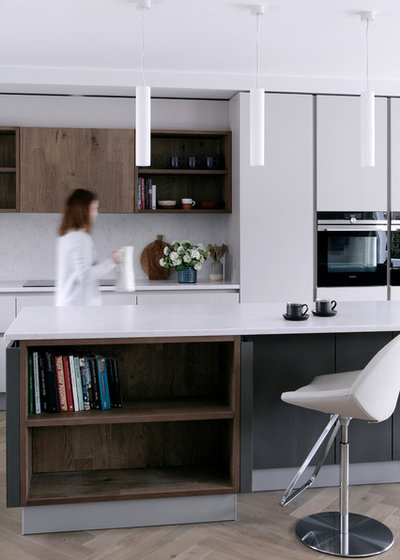

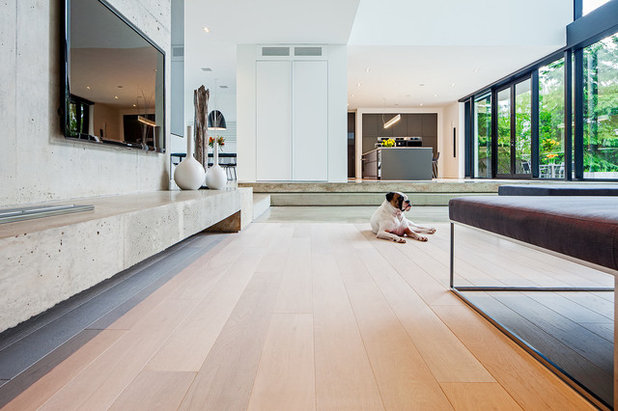
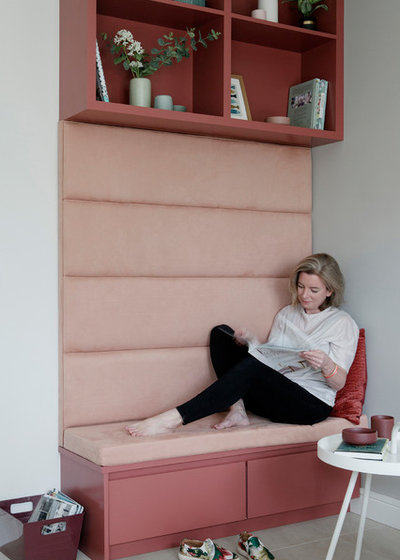








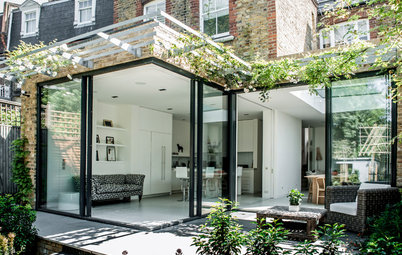

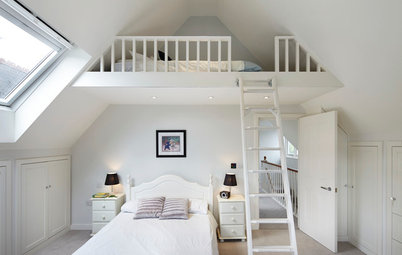

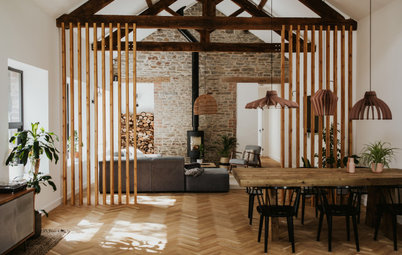

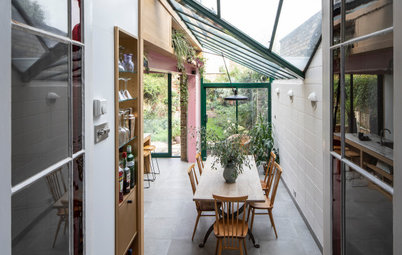
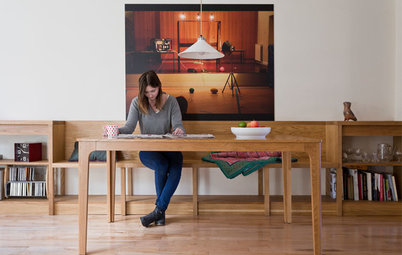
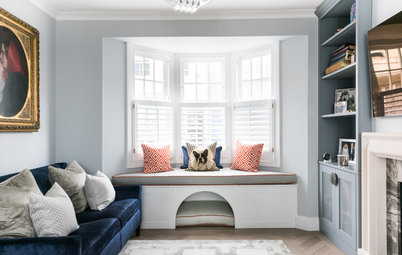
Our tradesmen were a great bunch of guys. We left the fridge plugged in (it was free standing at the time) filled it with bottles of water milk etc. I suggested some beers too but the boss guy laughed and said probably not a good idea (although would've been welcome at the end of the day I'm sure) we were amazed at how much cleaning stuff they got through too! All my cleaning materials and cloths were used, mop and broom heads gone, bucket wrecked. But when we had got back after 3 weeks away, everything had been replaced with new and a thorough clean up job had been done throughout our flat (We had all the floors ripped up and tiled throughout plus a new fitted kitchen)
A great deal of sensible advice here. Keeping money back for emergencies is a must! We over ran on our budget slightly due to uneven floors which had to be screeded before tiling and one wall in the kitchen had to be re done It wasn't too much but we had not factored that problem into our budget. Will remember next time. Always allow for something else that might have to be done.
How to decide between two builders and how to let one down?